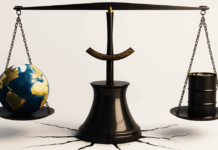The discovery and use of natural gas should form the backbone of regional economic integration among the Southern African Development Community (SADC) member countries, said President Jacob Zuma.
The President was delivering the closing statement at the 37th Ordinary SADC Summit with the theme, Partnering with the Private Sector in developing Industry and Regional Value Chains, in Pretoria on Sunday.
Zuma has been elected to take over the reins as new SADC chair from King Mswati III of Swaziland.
Member states of SADC are Angola, Botswana, Democratic Republic of the Congo, Lesotho, Malawi, Mauritius, Mozambique, Namibia, Seychelles, South Africa, Swaziland, Tanzania, Zambia and Zimbabwe.
In his speech, Zuma welcomed the decision taken at the ten-day long summit that the SADC Secretariat will oversee the establishment of a regional natural gas committee to promote the inclusion of gas in the regional energy mix and in the promotion of industrial development in the SADC region.
In Mozambique in particular the gas-to-power industry is gaining momentum as is evident from Sasol’s planned development of a 400MW gas-to-power plant in Maputo. This comes on the back of clear indications of a very healthy supply of gas in Mozambique.
South Africa on the other hand will soon start pursuing the exploration of shale gas resources in the Karoo basin. A report by the World Energy Council in partnership with Accenture showed that South Africa has significant potential for shale gas development, having the eighth biggest reserve of shale gas in the world.
In addition, a new Liquefied Petroleum Gas import and storage facility was recently launched near Saldanha Bay, which would alleviate South Africa’s gas shortage and broaden its energy mix.
Zuma said one of the resolutions taken at the 37th summit is to have concrete outcomes so as to leverage the natural endowments in the region to change the structure of the economy through agro-processing, mineral beneficiation and pharmaceuticals.
“Africa is the richest continent with the poorest people. Our heritage and endowment must be used to drive economic development for the benefit of all Africa’s citizens.”
Intra-regional trade
Zuma also emphasised the need to realise the SADC Integration through establishing free trade areas.
At the World Economic Forum on Africa in Durban in May this year, a number of discussions centred on the fact that African countries don’t make the most of intra-regional trade possibilities.
Minister in the Presidency Jeff Radebe told an audience in Cape Town last year that the level of trade among SADC countries only accounted for 12% of Africa’s total trade.
He said at the time that although it is laudable that SADC states had entered into various bilateral and multilateral trading agreements to promote the movement of goods, it was a “spaghetti bowl” of regional free trade areas and customs unions arrangements and that better harmonisation was needed.















